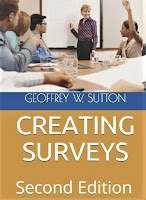It is no secret that the official position of the Catholic church opposes abortion. Many evangelicals groups also promote antiabortion positions.
The subject of abortion continues to divide Americans as
evident in survey data. This has been highlighted recently with the addition of
Justice Barrett to the Supreme Court—a judge known for her prolife advocacy. In
the summer, Justice Thomas famously attacked the court’s ruling in Roe v. Wade
(CNN).
In 2020, most Americans, the majority of whom are Christian,
support abortion, though sizable percentages prefer laws that pose some limitations.
Some important questions are not asked every year so, some data in the 2020
post refer to 2019, 2018, etc.
The Gallup
organization has looked at variations in opinions about abortion. This is
helpful as advances in medical science make it possible for the unborn to live
outside the womb at younger and younger ages.
So, where do Americans stand on abortion?
79% support a legal abortion under any (29%) or certain circumstances
(50%). A small percentage (20%) believe abortion should be illegal in all
circumstances.
46% consider themselves prolife and 48%, prochoice. These
numbers reflect a close split, especially considering statistical error. But
notice how it compares with the 79% support number. Prolife people would appear
to allow for abortion under certain circumstances. How questions are asked make
a difference. (Read more about variations in positions.)
I study moral psychology so I found the Gallup question
about moral acceptability interesting.
44% of Americans consider abortion morally acceptable and
9% reported it depends on the situation—47% opine abortion is morally wrong.
60% of Americans did not want Roe v. Wade overturned in 2019.
How you ask a question makes a difference in the answer you get.
Prolife is probably too vague a concept to be meaningful when it comes to understanding opinions about abortion.
There are more data so, head to the Gallup report
for details.
Christian Morality ALSO ON GOOGLE BOOKS
Links to Connections
My Page www.suttong.com
My Books AMAZON and GOOGLE STORE
FOLLOW
FACEBOOK Geoff W. Sutton TWITTER @Geoff.W.Sutton
PINTEREST www.pinterest.com/GeoffWSutton
Articles: Academia
Geoff W Sutton ResearchGate
Geoffrey W Sutton




Comments
Post a Comment